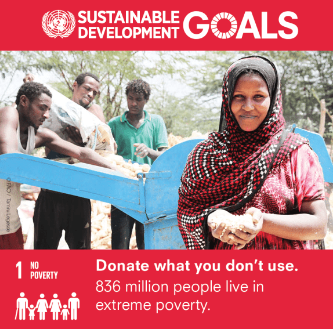



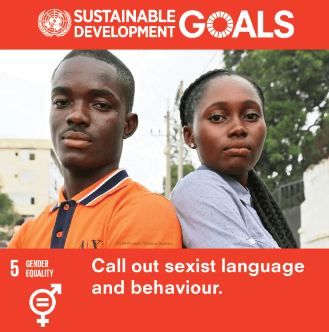
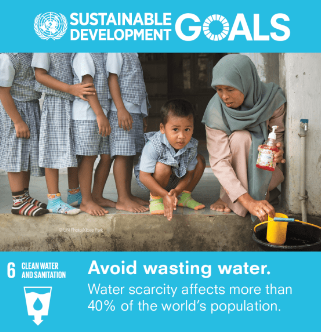











| SDGs Today the global hub for real-time SDG data |
| ◄ | SUSTAINABLE DEVELOPMENT GOALS |
| __________________________________________________________________________________________________________________________________________________________________________ |
|
 |
 |
 |
 |
 |
 |
 |
 |
 |
|
 |
 |
 |
 |
 |
 |
 |
 |
|
|
| Why the SDGs Matter |
| Why the SDGs Matter: The 2030 Agenda for Sustainable Development provides a global blueprint for dignity, peace and prosperity for people and the planet, now and in the future. A few years into the Agenda, we see how civil society, private sector, and governments are translating this shared vision into national development plans and strategies.
The Sustainable Development Goals are a call for action by all countries – poor, rich and middle-income – to promote prosperity while protecting the planet. They recognize that ending poverty must go hand-in-hand with strategies that build economic growth and address a range of social needs including education, health, social protection, and job opportunities, while tackling climate change and environmental protection. |
|
|
Whether science really will save the world remains to be seen. But one thing we know is that scientists can point us in the right direction by putting the right questions.
Attainment of the SDG’s will demand gigantic funds, sustainable innovative finance, values based banking. The UN is an intergovernmental organisation. It don’t have legal sanctional power if agreements are not fulfilled or undermined, e.g. when countries move production to abroad. Can we use big data? How about teaching about sustainability in education? Is there sufficient coordination and supervision within the system of multi-level governance in order to achieve successful implementations? What indicators and how to measure progress? What do governments do for propaganda for the SDGs? Where can public and business address questions? How does policy reach society? Can capital flows be used more effectivily? Can those who loose be compensated? |
| Financing |
|
In 2002, the International Conference on Financing for Development, which issued the Consensus, brought over 50 heads of state and an unprecedented number of finance and other ministers together to agree on the first international framework for financing development. A follow-up process has continued through intergovernmental negotiations to build on and update commitments, including the Second Global Conference on Financial for Development in Doha in 2008 and the Third International Conference on Financing for Development held in Addis Ababa in July 2015. The Addis Ababa Action Agenda created a new Financing for Development Forum under ECOSOC, which Council is charged with reviewing follow-up to the landmark Monterrey Consensus (*) on financing for development.
|
UNITED NATIONS SECRETARY-GENERAL published the Roadmap for Financing the 2030 Agenda for Sustainable Development
2019 – 2021. Two thousand and fifteen was a landmark year for multilateral agreements. The 2030 Agenda, with its 17 Sustainable Development Goals (SDGs) and the Paris Agreement on climate change provide a pathway for a more prosperous, equitable and sustainable future. The Addis Ababa Action Agenda (AAAA) establishes a blueprint to support the implementation of the 2030 Agenda by providing a global framework for financing sustainable development that aligns all financing flows and policies with economic, social and environmental priorities. This year, 2019, is a defining year for the next, bolder and more urgent phase of implementation of the SDGs and the Paris Agreement. The upcoming ‘decade of action’ (2020 – 2030) requires significant public and private investment to bring the SDGs and goals of the Paris Agreement to life for all people, everywhere. Financing for sustainable development is available, given the size, scale and level of sophistication of the global financial system — with gross world product and global gross financial assets estimated at over US$ 80 trillion and US$ 200 trillion respectively. However, available finance is not channeled towards sustainable development at the scale and speed required to achieve the SDGs and goals of the Paris Agreement. |
At the same time, global flows of foreign direct investment (FDI) have fallen by 23 per cent in 2017,5 and private investments in SDG-related infrastructure in developing countries were lower in 2018 than in 2012.
Investments in sustainable development are growing in some areas and countries, and there is evidence that investing in the SDGs makes economic sense, with estimates highlighting that achieving the SDGs could open up US$ 12 trillion of market opportunities and create 380 million new jobs, and that action on climate change would result in savings of about US$ 26 trillion by 2030. The SDGs are increasingly incorporated into public budgets and development cooperation, and many countries have taken steps to ‘green’ their financial systems. Green bond issuance has increased tremendously — from US$ 2 .6 billion in 2012 to US$ 167 billion in 2018; innovative SDG-related financial instruments are unlocking new sources of finance; and the digitalization of finance is demonstrating its potential to improve the mobilization and utilization of funds for the SDGs. Financial industry regulators are increasingly acknowledging the potential implications of climate-related risks on financial stability, and global sustainable investments — at US$ 30 trillion in the five major developed markets in 2018 — is reportedly on the rise. This highlights a growing recognition by the financial industry in the value of long-term sustainable investing and the importance of considering climate-related risks into investment decision-making . However, sustainable investments represent only a small share of the US$ 200 trillion in global private sector financial assets. The lack of common definitions, standards, and impact measurements, as well as the fact that reported sustainable investments do not necessarily represent investing in real assets but also in financial assets, mean that such numbers should be treated with care. Similarly, the strong growth in green bond issuance still only represents about 2 .5 per cent of total bonds issued globally. |
Channeling available finance towards the SDGs and the goals of the Paris Agreement are constrained by a range of challenges including:
The United Nations (UN) has a long history of supporting Member States on financing for development, including through intergovernmental processes, technical and programmatic expertise, partnership-building, thought leadership and knowledge sharing. In order to enhance the UN’s critical role in supporting and accelerating finance for sustainable development, the Secretary-General released his Strategy for Financing the 2030 Agenda for Sustainable Development in September 2018 . The Strategy is designed to transform the financial system from global to local levels in support of the 2030 Agenda by addressing the barriers that constrain channeling finance towards sustainable development, and leveraging opportunities to increase investments in the SDGs at scale . |
(*) the outcome of the 2002 Monterrey Conference, the United Nations International Conference on Financing for Development in Monterrey, Mexico. It was adopted by Heads of State and Government on 22 March 2002. Over fifty Heads of State and two hundred Ministers of Finance, Foreign Affairs, Development and Trade participated in the event. Governments were joined by the Heads of the United Nations, the International Monetary Fund (IMF), the World Bank and the World Trade Organization (WTO), prominent business and civil society leaders and other stakeholders. New development aid commitments from the United States and the European Union and other countries were made at the conference. Countries also reached agreements on other issues, including debt relief, fighting corruption, and policy coherence. Since its adoption the Monterrey Consensus has become the major reference point for international development cooperation. The document embraces six areas of Financing for Development (FfD): 1. Mobilizing domestic financial resources for development. 2. Mobilizing international resources for development: foreign direct investment and other private flows. 3. International Trade as an engine for development. 4. Increasing international financial and technical cooperation for development. 5. External Debt. 6. Addressing systemic issues: enhancing the coherence and consistency of the international monetary, financial and trading systems in support of development. |
|
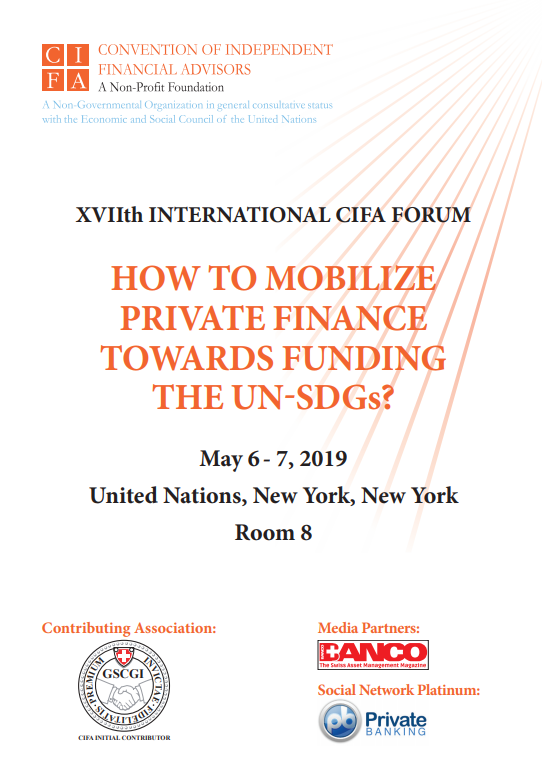 |
| III. “One world for all: empowering people to build equal and inclusive societies” “addressing inequalities and challenges to inclusion through fiscal, wage and social protection policies” to fight, persistent unemployment, stagnating wages, rising cost of health. IV. Global financial system regulation and the impending need to finance the United Nations’ SDGs V. Taxation and SDGs VI. Quantum politics and SDGs |

|
|
During the intensive events, the VZMD President participated in numerous other meetings and discussions, including with the Director of the UN Division for Inclusive Social Development, Ms. Daniela Bas, the Director of the UN Financing for Sustainable Development Office, Mr. Navid Hanif, and the Slovene Minister Plenipotentiary at the Permanent UN Representation, Mr. Miha Erman, and on Sunday, he also attended the reception at the Millennium Hotel near the UN palace. The VZMD has been working successfully with the CIFA, the influential Geneva, Switzerland-based international foundation, for many years, and in 2016 Mr. Verbič was an invited speaker at the highly visible 14th CIFA forum in Monte Carlo, Monaco. |
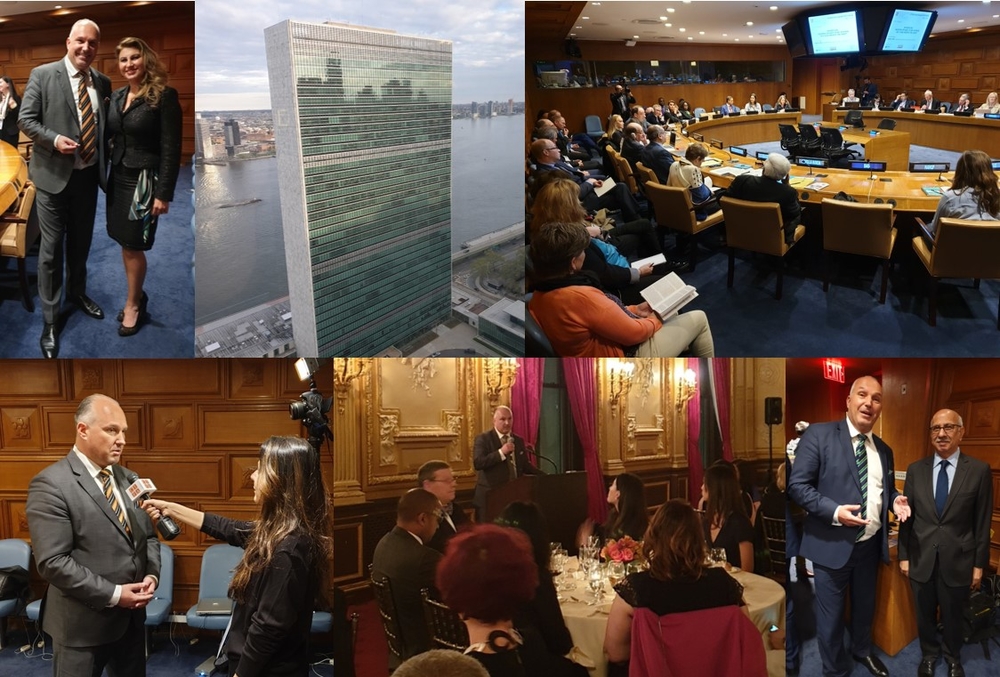 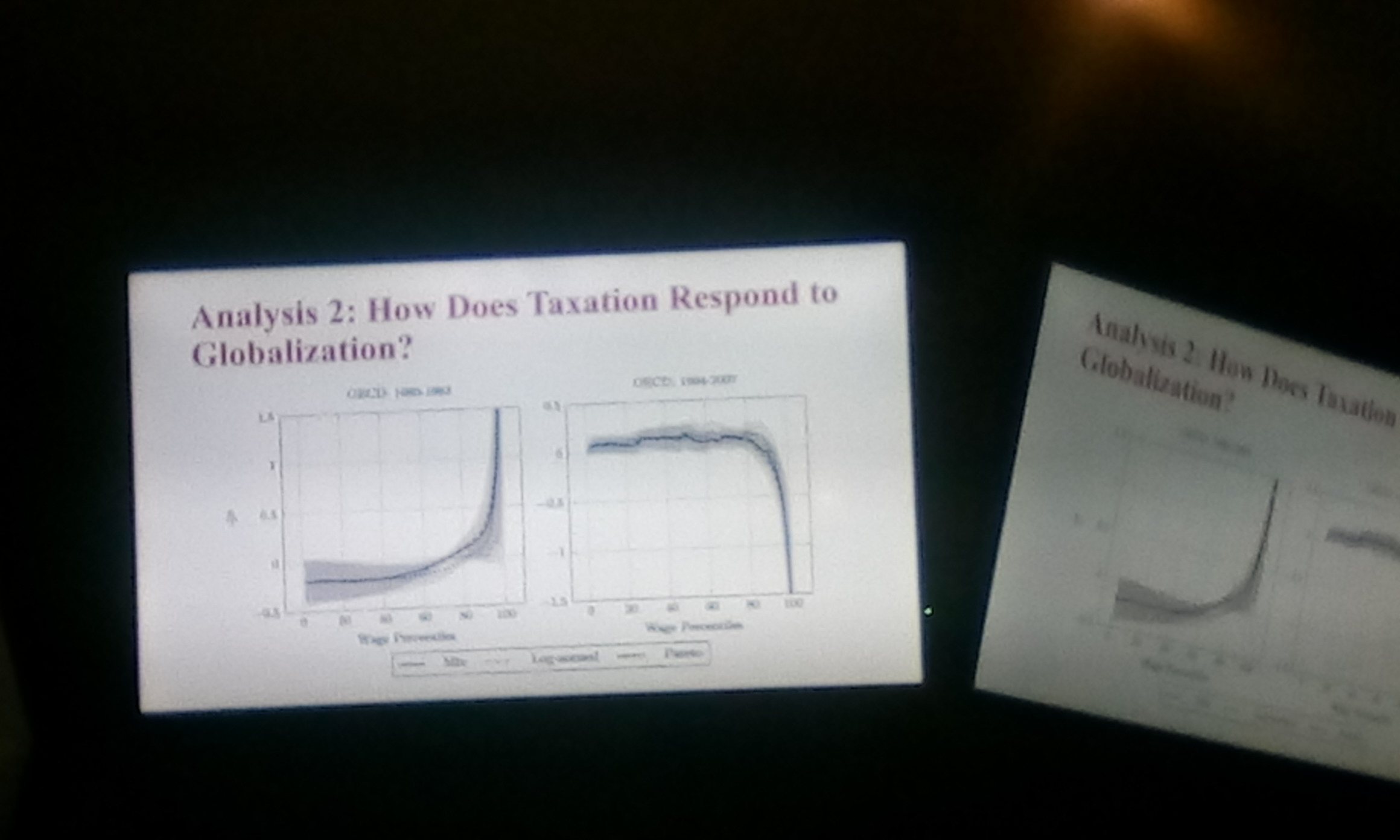 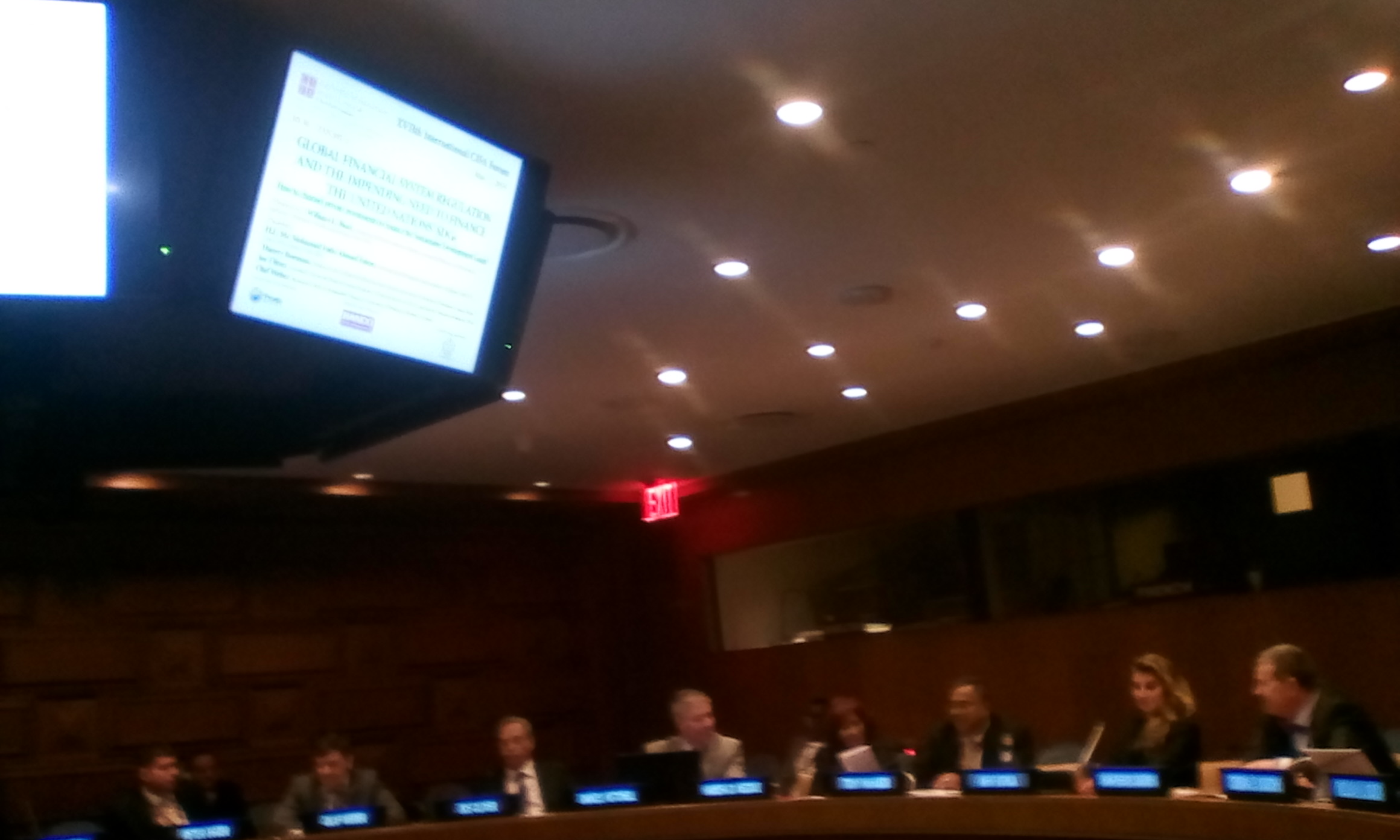 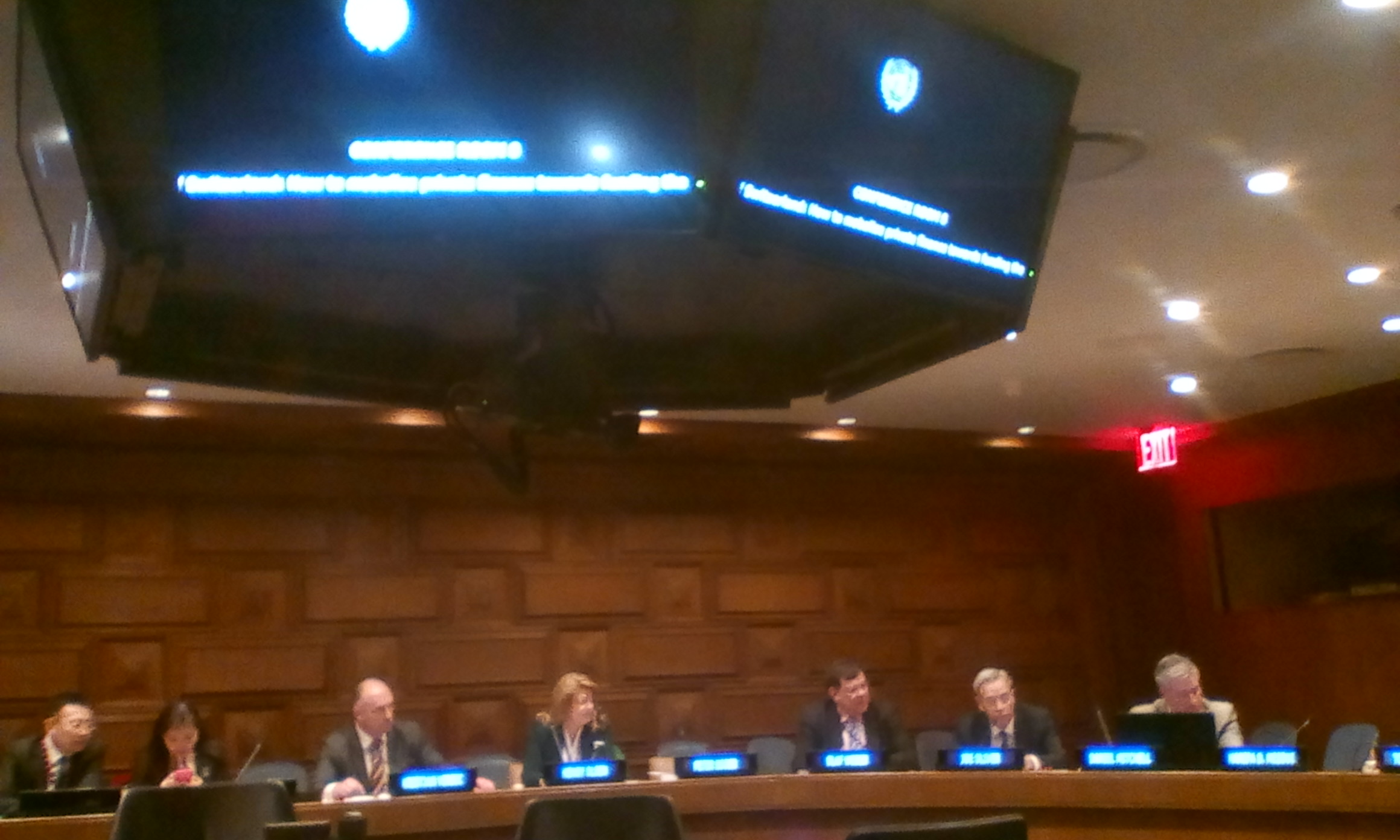 |
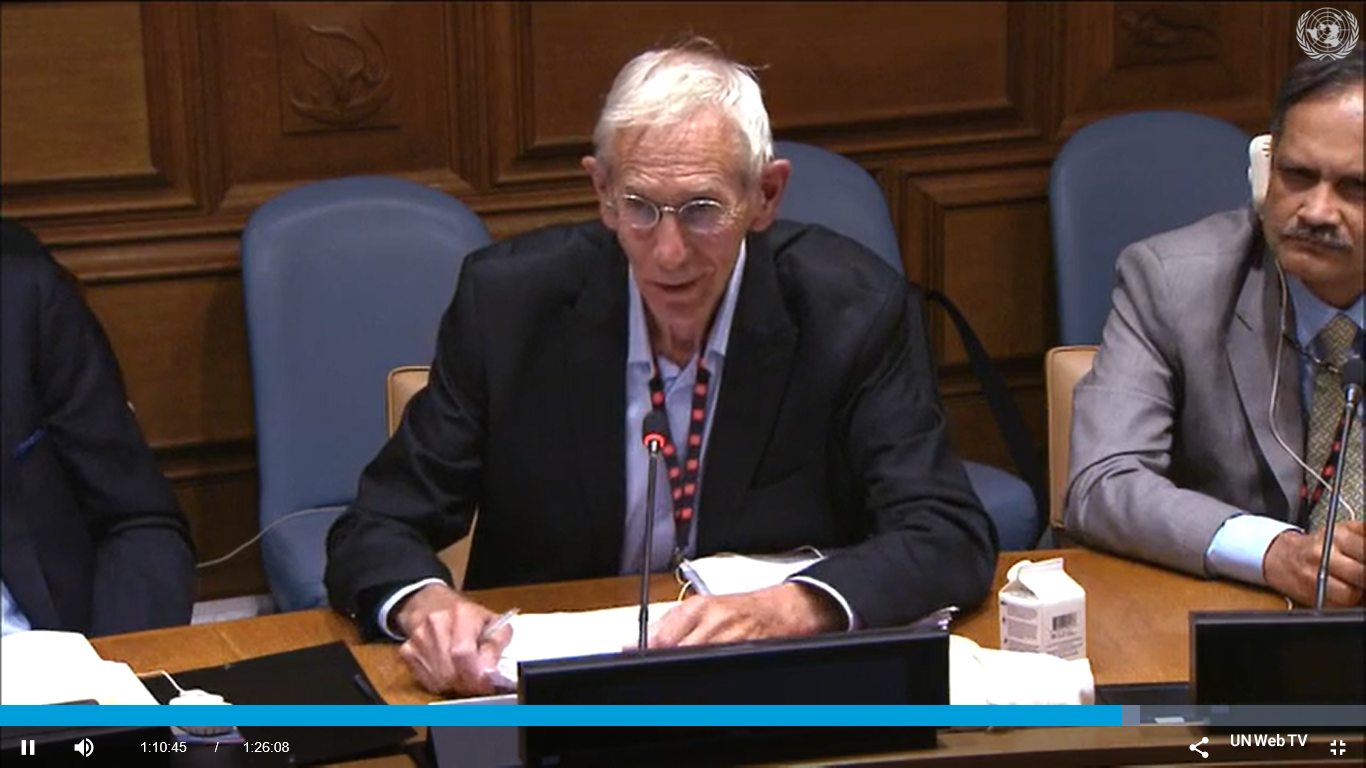 |
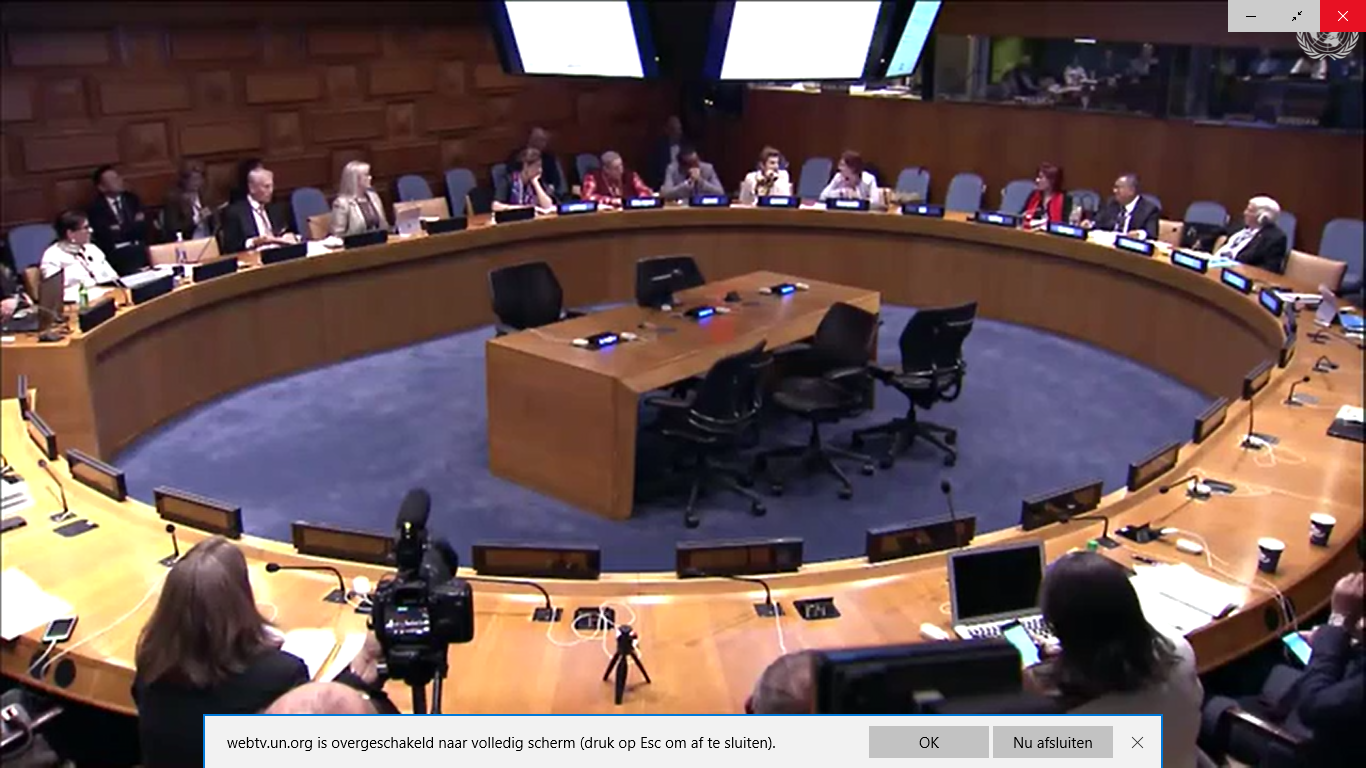 |
||||||
|
|
closing dinner |
"Yesterday, I heard the name Adam Smith and am happy with that. Adam Smith argued that a moral framework and cooperation are essential for a successful society. 250 Years later, we landed in financial crisis and in air pollution. But we can also build cities like Rome and New York or put a man on the moon and create microchips.
In the current era, we are living in several worlds; a world of modern humanism, a world turning more Hobbesian and a world of ethnic distancing and religious separatism. To achieve the SDGs, modern humanism along with a free market economy and a liberal economic model is the most eligible to meet the broadest needs of the people. But this is still not enough. What lacks we discussed last 2 days. Capital will flow where it is wanted and stay where it is well treated", Walter Wriston wrote. Investors want to invest where there is trust, future expectations and sufficient return on equity. In this juncture, ESG is an additional factor of importance "It's to consider to include the SDGs in the Blockchain ecosystem. Moreover, to couple to the securities exchange and to separated stock market indexes and listings." |
| HOMO HUMANE |
| “There had to be a mistake in the belief that the free market can better regulate itself than any government supervision would do” (Alan Greenspan, 2008 for a committee of the US Congress). |
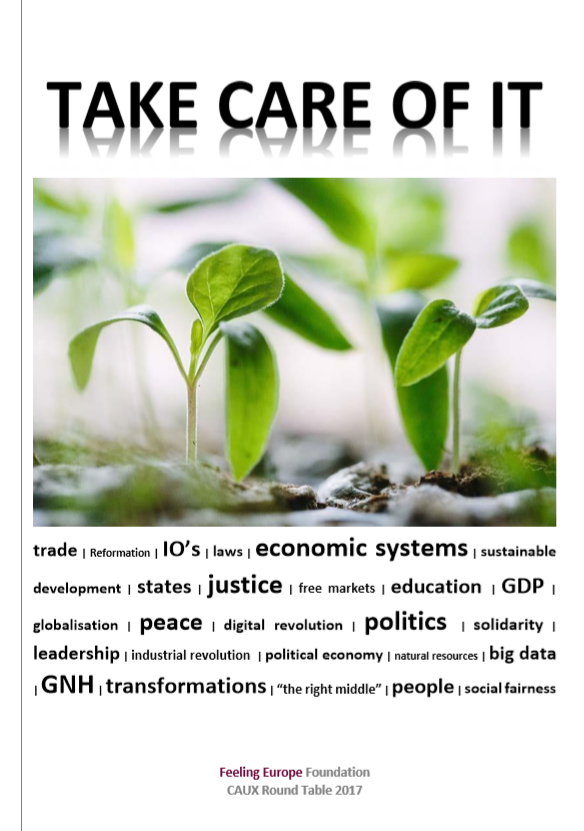 |
|
|
|
|